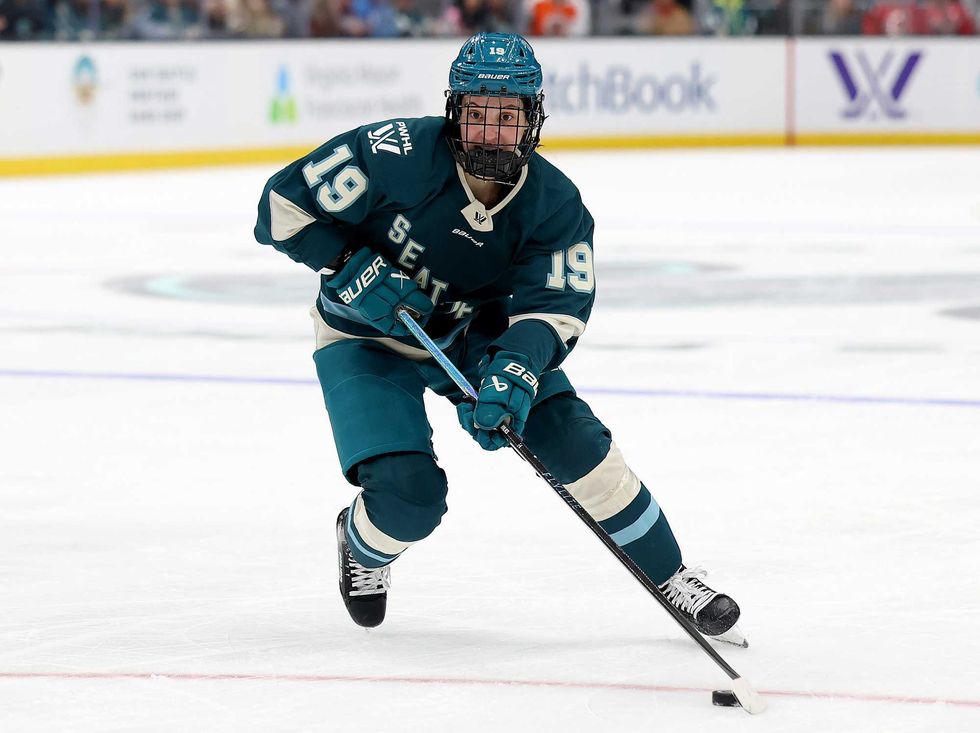TCU Signs for Success
TCU refuses to stray from recruiting formula despite unprecedented success
When TCU accepted the invitation to join the Big 12 before the 2012 season, the hope was that access to a big-time conference would give the Horned Frogs big-time opportunities. Three years later, thanks in part to a surprising run at the first College Football Playoff, the Horned Frogs have finally seen a bump in recruiting.
The Horned Frogs’ 2015 recruiting class could be recalled four or five years from now as one of the best in school history, if you believe recruiting rankings. The Horned Frogs signed 21 players on Wednesday, a class that Scout.com ranked No. 26 nationally. Scout has ranked just one TCU class higher: 2011, ranked No. 21. That’s certainly an improvement over 2014 (No. 38), 2013 (No. 43) and 2012 (No. 38).
TCU hardly cares about where players are ranked. Patterson wants coachable kids who value hard work over being “the star.”
TCU managed to sign a quartet of four-star players, according to Scout, giving them 23 four-star recruits in the last seven years, as opposed to the five four-star recruits the program signed between 2001-08.
Of course, as in the past four years, the Horned Frogs failed to sign a five-star recruit or a national top 100 player, according to Scout. But I can tell you that TCU hardly cares about where players are ranked.
Sure, it’s nice to be able to recruit more highly rated talent. But coaches like Gary Patterson also have a type of player they want to recruit. Above talent and ability, Patterson wants coachable kids who value hard work over being “the star.”
When the Horned Frogs were living in Conference USA, the Western Athletic Conference and the Mountain West, they were gathering two- and three-star recruits who fit their system and turning them into four- and five-star college players. Thanks to that, TCU became a consistent winner.
Think about that Rose Bowl championship team from 2010. Quarterback Andy Dalton was part of TCU’s 2006 recruiting class and was not considered a top 10 quarterback nationally. He was a three-star recruit. Then look at the top 10 quarterbacks from that class. Half made it to the NFL. Four started an NFL game. Two — Matthew Stafford and Jake Locker — were starters in 2014.
Senior quarterback Trevone Boykin will be a Heisman Trophy frontrunner in 2015. The only other college that offered him a scholarship was Texas-El Paso. The best running back in TCU history, LaDainian Tomlinson, wasn’t heavily recruited, either.
Matching the player with the program is more important than ever in college football because more recruits, thanks to a culture of camps, coaching clinics and year-around maintenance of their football skills, come to the college ranks with more advanced skills than they did 10 years ago. To some degree, recruiting football players is something akin to throwing darts at a dartboard and hoping you hit the bull’s eye.
TCU is better at correcting for those misses by selecting players that fit what they want rather that just signing a player based on sheer talent.
So the Horned Frogs still have their profile of the type of players they want. Only three of its newest recruits are from out of state. It’s class has players from big schools like Keller Fossil Ridge and Euless Trinity; others come from smaller schools like New Boston out in East Texas.
It’s also heavy on speed, such as Arlington Sam Houston’s Darrion Flowers, who ran the fastest 100-meter dash time in the nation last year among high school juniors. The Horned Frogs also managed to keep Grand Prairie South wide receiver Jaelan Austin home. Austin was TCU’s highest-ranked, in-state recruit, according to Texasfootball.com.
Few of these players will help the Horned Frogs in 2015, but that’s really not the point. Programs that remain successful year in and year out recruit the right players for them, and not necessarily the highest-rated players.
In the face of unprecedented success, TCU is sticking to the formula. Why shouldn’t it when it’s worked for the better part of 15 years?

 Hannah Bilka is one of two North Texans competing in this year's Games.Photo courtesy of Getty Images
Hannah Bilka is one of two North Texans competing in this year's Games.Photo courtesy of Getty Images In addition to being a top-notch figure skater, Emily Chan is also trained in Chinese modern dance and ballet.teamusa.com/
In addition to being a top-notch figure skater, Emily Chan is also trained in Chinese modern dance and ballet.teamusa.com/ Plano's Amber Glenn will have the Dallas-Fort Worth crowd on its feet. Facebook/ISU
Plano's Amber Glenn will have the Dallas-Fort Worth crowd on its feet. Facebook/ISU  Boone Niederhofer is a former Texas A&M University football player.Photo courtesy of Getty Images
Boone Niederhofer is a former Texas A&M University football player.Photo courtesy of Getty Images